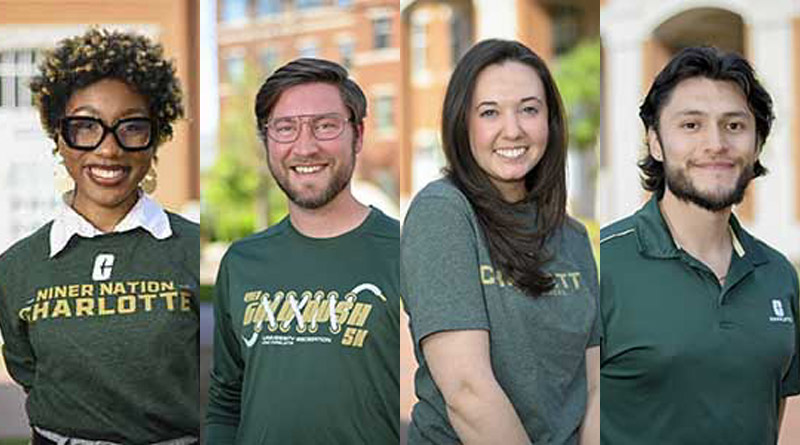Charlotte Prepares Graduate Students For Counseling And Recognizes Faculty Guiding Them
Throughout April, which is National Counseling Awareness Month, UNC Charlotte and the Cato College of Education recognize the graduate students preparing to enter the profession. At the same time, the University salutes the faculty members guiding them; with varied experience and expertise, most are current or formerly practicing counselors.
In an environment that offers a number of online options, Charlotte’s master’s-level counseling programs in school counseling, clinical mental health and addictions counseling are fully face-to-face, providing a niche for students who prefer in-person training and supervision, and thrive on regular contact with their professors.
“Due to the increase in mental health challenges among young people and adults, there exists a demand for access to counselors and behavioral health services,” said Sejal Parikj Foxx, Ph.D., LPSC, professor and chair of counseling, who earned a doctorate in counseling at Charlotte in 2008. “Counselors are needed in both public and private counseling spaces, and we offer training in various settings for individuals across the lifespan.”
In school counseling alone, 48% of Charlotte graduates between 2010 and 2023 are working in North Carolina public or charter schools; 14% of that same population are employed by Charlotte-Mecklenburg Schools. Leadership in the profession is provided through UNC Charlotte’s Urban School Counseling Collaborative (the only one in the U.S.) and Center for Play Therapy (one of two in the country). Electives in play therapy, grief and loss counseling, trauma counseling and counseling older adults allow for specialization.
Register now: 18th annual Multicultural Play Therapy Center Conference, June 21-28

